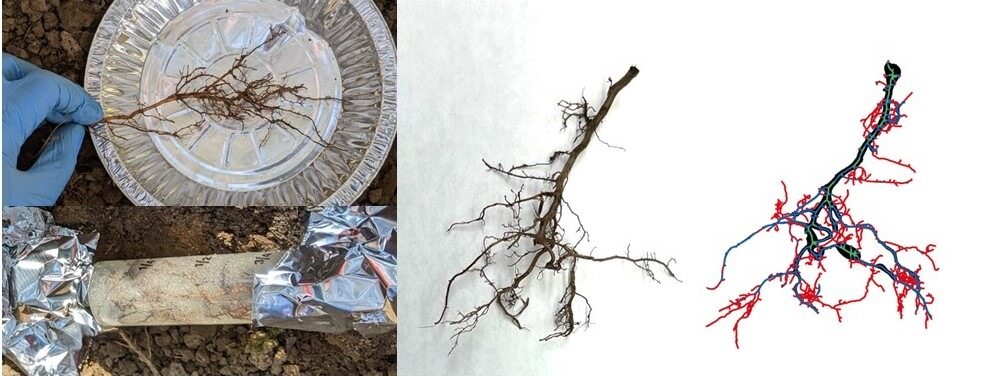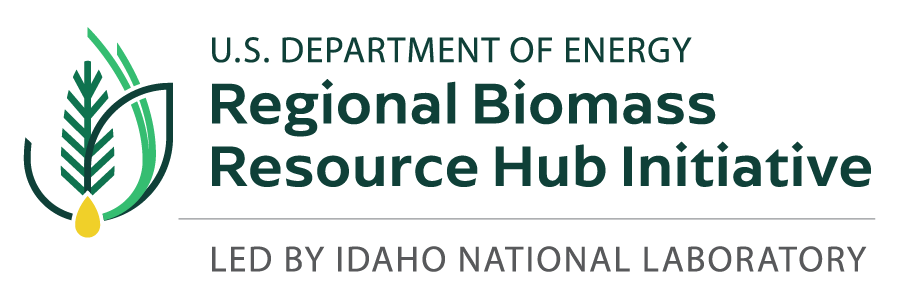Description
Belowground plant traits are critical to crop resilience and sustainability outcomes. Standardized sampling methods can facilitate more extensive plant phenotyping in greenhouse and field settings, and environmental monitoring. ORNL capabilities in this area include greenhouse evaluation for plant growth, stem and root properties, and exudates. Rhizosphere–microbe interactions can be studied in sterile media, inert substrate, or soil for metabolites, nutrients, and architecture. Field-relevant capabilities include fine root biomass collection for elemental analysis, metabolomic analysis (GC–MS and LC–MS), and architecture/morphological characterization, as well as soil core collection, soil fractionation (by size) to separate particulate and mineral-associated organic matter (POM/MAOM) fractions, and soil elemental analysis. Advanced plant phenotyping capabilities include field collection of root exudates for analysis of total carbon and for metabolomic profiling.
Capability Bounds
Samples can range from subsamples of fine roots and development zones of roots to pooled fine roots from field to whole root systems of greenhouse plants. Growth platforms vary in scales from the size of a single microscope slide (rhizochip) to few inches of sterile mesocosm to field sites in subkilometer range.
Unique Aspects
There has been only very limited application of field collection of exudates for metabolomic profiling. Co-application of these techniques can identify select belowground plant traits controlling long-term sustainability traits (e.g., MAOM formation) in different cropping systems grown in different environments.
Availability
Relevant protocols, equipment, and trained staff are available at ORNL and can join in fieldwork on partnering projects.
Benefit
Detailed belowground phenotype datasets for novel energy crops are limited, but have high value to inform modeling, breeding, and engineering of energy crop resilience and sustainability performance.
Capability Expert(s)
Udaya Kalluri, Larry York, Melanie Mayes, Matt Craig, John Field

References
Craig, M. E., Harman-Ware, A. E., Cope, K. R., & Kalluri, U. C. (2023). Intraspecies variability in plant and soil chemical properties in a common garden plantation of the energy crop Populus (opens in new window) (p. 2023.06.16.545338). bioRxiv.
Seethepalli, A., Dhakal, K., Griffiths, M., Guo, H., Freschet, G. T., & York, L. M. (2021). RhizoVision Explorer: Open-source software for root image analysis and measurement standardization (opens in new window). AoB PLANTS, 13(6), plab056.
